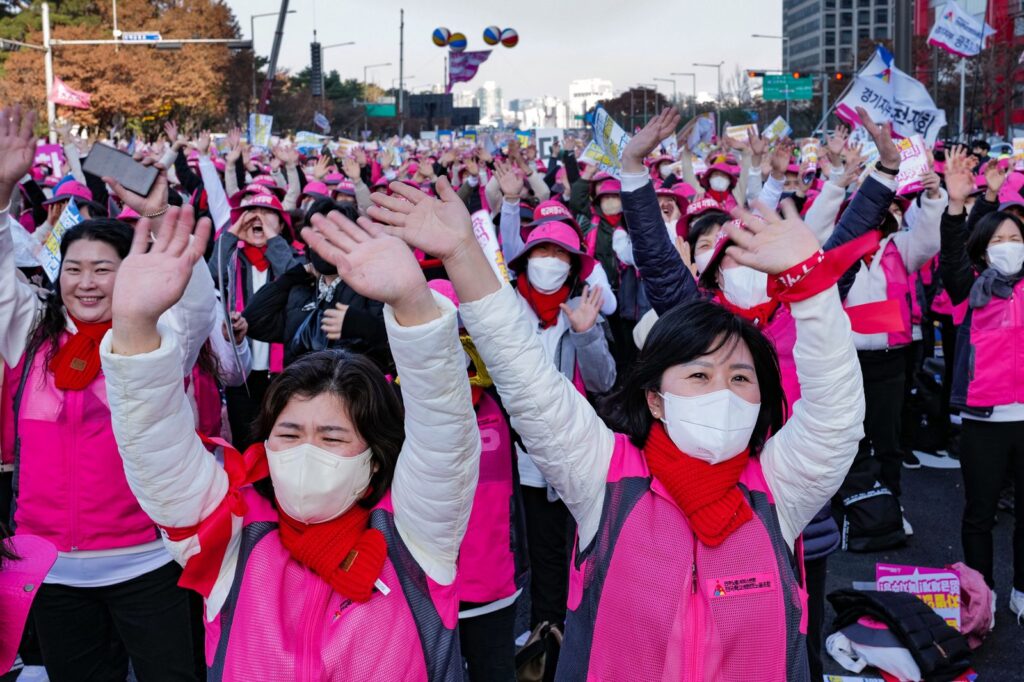Generational Tensions in South Korean Work Culture

It’s pretty common knowledge that Korean and Japanese work cultures are, uh, a bit demanding of junior workers, who basically have to do whatever the boss tells them to do, whether work 90 hour weeks or go drinking with them every night and never see their families. It’s been a problem for a long time and there’s a large scholarly literature exploring different facets of this.
This is an interesting article about generational rifts over this developing in South Korea, where companies are trying to enforce very long hours and younger workers are very not happy about it.
As a reporter covering South Korea from the Seoul bureau of The New York Times, I have written about the country’s cutthroat education system. It may come as no surprise that South Korea’s work culture is also rigorous. There is a lot of data to prove this, and more than enough anecdotes about employees working extremely long hours. But to have the nation’s largest companies go on the record about implementing longer working hours for managers — a response to a downturn in business — is another thing altogether.
The news about longer hours appeared on my radar in the spring. Through online forums, and later from the local news, I learned that some influential South Korean companies were advocating longer hours, and in some cases, even encouraging managers to come to the office six days a week.
….
To me, this article had as much of a generational element as it did a business one. In an interview, Joon Han, a sociology professor at Yonsei University, said that unlike previous generations, today’s job seekers in South Korea value work-life balance and flexibility.
In Korean, there is a term called nunchi, which doesn’t have a direct English translation but signifies one’s ability to read the room, a kind of implicit pressure. It’s a large part of our culture. In a corporate setting, it might include meeting your bosses’ expectations without being asked to. While the six-day workweek may apply only to executive leaders, younger workers say it’s only a matter of time before it trickles down the ranks. I wanted to include their voices as well.
“Companies say they’re only making managers come in on the weekend, but if you see your boss working on a Saturday, you’re going to feel nunchi,” said Kim Seol, a representative of the Youth Community Union, a labor group for people ages 15 to 39.
Many younger employees no longer want to live in a society like this. I worked last year on an article about the Metaverse and its foray into the entertainment industry. My Times colleagues were enamored by one of the characters, Pengsoo, a life-size penguin with a jarring voice and a snappy attitude that quickly became popular among those in their 20s and 30s for its no-nonsense remarks. Experts told me the popularity of Pengsoo — who was named South Korea’s “person of the year” in 2019 — speaks to changing norms around hierarchy and work culture in South Korea.
In the end, what’s the point of that level of work? Why do it? I get I am approaching this like an American, but I lived for a year in South Korea so it’s not like I haven’t seen this in action. South Korea is no longer a developing nation. Their business model doesn’t really require outworking every other country anymore. But it’s extremely difficult to change a work culture. So we will see if anything does change or whether these younger workers just become bitter older workers forcing a new generation to do it because they had to.
